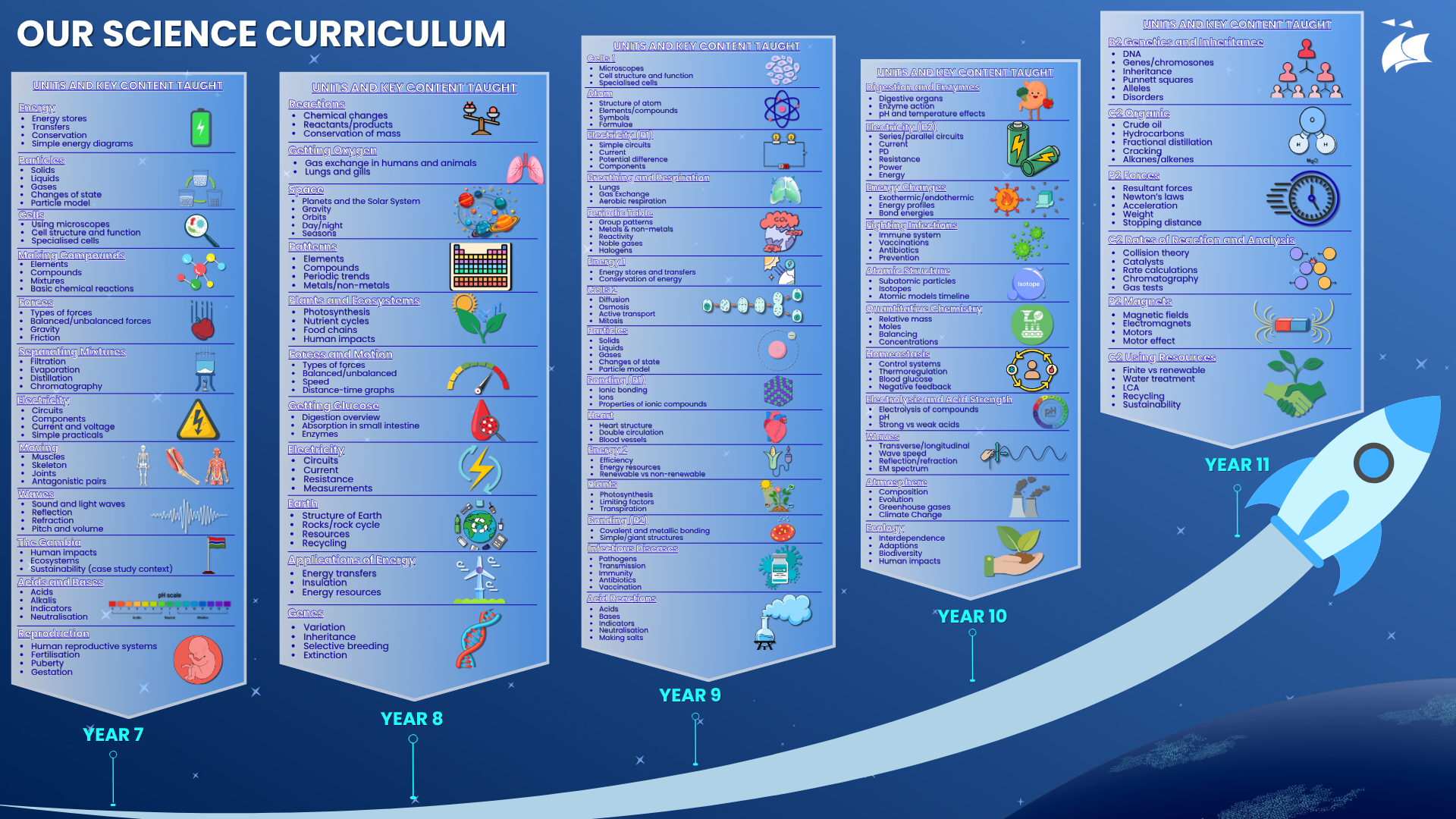Welcome to the SCIENCE DEPARTMENT
What is Science?
Science is the study of the natural world, helping us understand how everything works and connects. It is a dynamic and evolving subject that encourages curiosity, creativity, and critical thinking. In science, students develop the skills, knowledge, and confidence to explore and question the world around them. Through science, we aim to inspire students to engage with the challenges of the future.
What is the purpose of learning Science at ALNS?
At ALNS, our science curriculum aims to nurture curiosity, critical thinking, and a deeper understanding of the world around us. We provide an engaging and ambitious curriculum that develops students' scientific skills, core knowledge, and confidence, empowering them to tackle real-world challenges. By building a strong foundation of scientific concepts, students gain the tools to explore complex ideas and make informed decisions. Through exploration and experimentation, we inspire students to question, investigate, and solve problems, fostering a lifelong appreciation of science and its relevance in everyday life.
How do we teach Science at ALNS?
Our curriculum at ALNS focuses on building core scientific knowledge and skills to deepen understanding and develop confidence. Each lesson is carefully planned by our specilast teachers, who adapt their approach to meet the needs of every class. We encourage curiosity and critical thinking through effective questioning, hands-on practical work, and discussions that bring science to life. Practical investigations are integral to our lessons, allowing students to apply their knowledge and develop essential skills like observation, analysis, and evaluation. Regular assessments and independent tasks help to consolidate learning and build confidence in applying science to the real world
5 Year Overview
Our KS3 science curriculum builds upon the foundational knowledge gained in Key Stage 2 and ensures students develop a secure understanding of the key concepts in biology, chemistry, and physics. These concepts are explored through engaging lessons that combine theoretical learning with hands-on practical work. Scientific skills such as planning investigations, analysing data, and evaluating evidence are woven throughout the curriculum to prepare students for further study.
At Key Stage 4, students begin studying the AQA GCSE Combined Science syllabus, which awards two GCSE grades. Alternatively, students may opt to study the Separate Sciences, earning individual GCSEs in biology, chemistry, and physics. The curriculum continues to build on core scientific principles while introducing more complex topics, emphasising practical application and preparation for exams.

